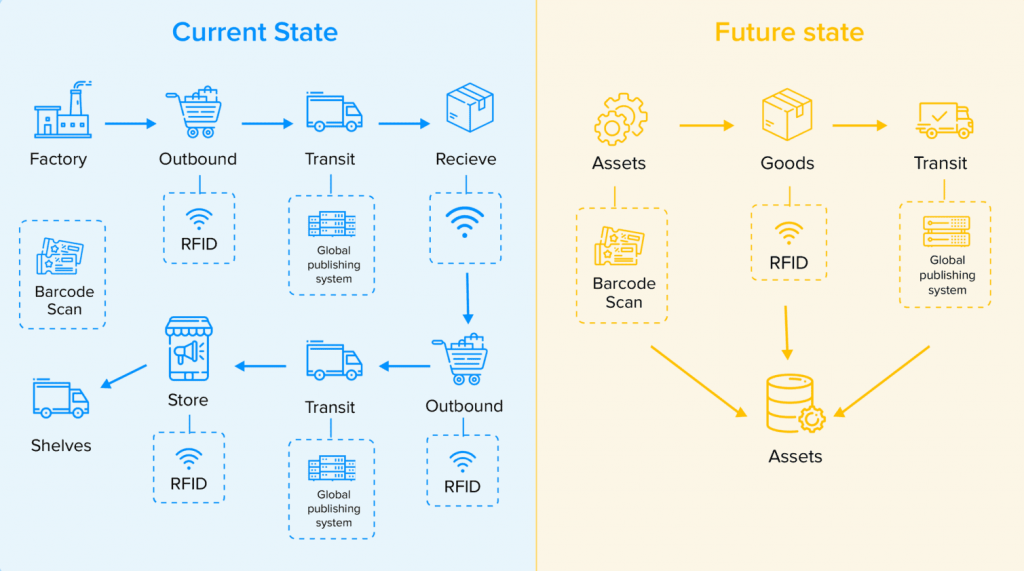Blockchain is decentralised and distributed digital ledger technology that records and verifies transactions securely. It was designed to be transparent, tamper-resistant, and resistant to censorship.
Blockchain operates on a peer-to-peer network, eliminating the need for a central authority or intermediary and giving an entire copy of the entire blockchain to each participant in the network. It is used for supply chain management, healthcare data management, voting systems, identity verification, and more. Once a block is added to the blockchain, it is extremely difficult to alter making the network immune.
In Fashion industry, it is used for maintaining the transparency in supply chain, tracking workers welfare in manufacturing, and transfer of ownership. Several means which are being integrated into the industry.
Blockchain provides a transparent and unalterable record of every transaction or movement of a product from its origin to the end consumer. Hence assisting tracking the provenance of materials used in garments, ensuring they meet ethical and sustainability standards. It lets the consumers to view where and how a product was made, increasing trust and accountability. It streamlines supply chain operations by providing real-time visibility into the movement of goods. This reduces delays, errors, and inefficiencies, leading to cost savings and improved customer satisfaction.
The luxury fashion sector suffers significantly from counterfeit goods. Blockchain can authenticate products through digital certificates or tokens to combat these issues. Brands can assign a unique, tamper-proof digital identifier to each item, which will let consumers to verify authenticity.
Blockchain facilitates the implementation of circular fashion models by tracking the lifecycle of products. It supports initiatives like recycling, reselling, and refurbishing by providing a history of items, including previous owners, usage, and refurbishment records. This not only extends the lifecycle of garments but also promotes a more sustainable approach to fashion consumption. Blockchain development have the potential to expand ethical and sustainable creation and consumption of commodity on a global scale.
Blockchain has impacted the Fashion Industry from tracking the garment right from the material to the history of purchase history. Think of the ease of tracking a garment right to the material for which it was made from, its purchase history on a website or, in-store. This traceability has brought all supply chain in the centralized digital platform.
In the creative aspects of fashion, blockchain is used to manage and protect intellectual property rights. Designers can register their designs on a blockchain to establish ownership. Smart contracts can automate royalty payments whenever a design is used or sold, ensuring creators are fairly compensated.

Some international brands are already utilising blockchain technology like: -LVMH, Prada, and Cartier launched the Aura Consortium, a blockchain platform aiming the promotion of transparency and authenticity across luxury brands. -Provenance provides blockchain-powered product transparency, enabling brands to share information about the sourcing and impact of their products. -VeChain is used by luxury brands to combat counterfeiting and ensure product authenticity through its blockchain platform.

Partha Banerjee
Associate Consultant


Leave a Comment